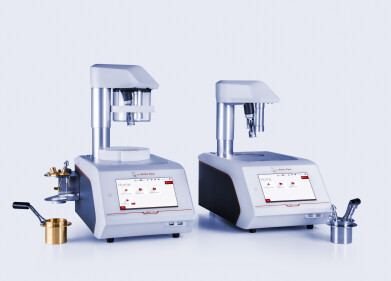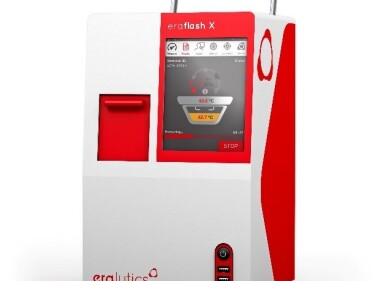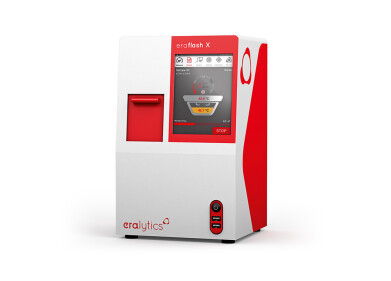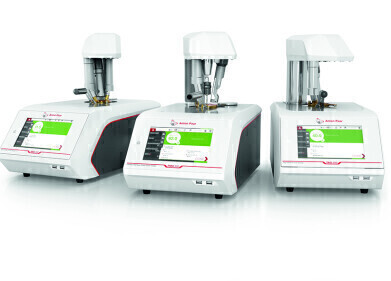Flash Point
Taking the Stress out of Petroleum Testing
Apr 27 2009
As a major supplier of petroleum test equipment with 25 years of experience Belgium’s ELS (European Lab Services) have developed a unique concept of service and calibration. ELS has ISO 17025 accreditation for calibration and testing of petroleum analysers such as ASTM D86 distillation, flash point, viscosity and cold behavior analysers. They have capabilities in all of the major parameters used in petroleum testing (temperature, pressure, time, flow, volume, rotation or frequency and testing with reference standards).
Quality is an important issue in the petroleum industry. Production of petroleum products is driven by the market demand. This demand is influenced by customer’s specifications, environmental and safety regulations, engine specifications and cost. Products that do not comply with specifications can cause machine wear or breakdown. They can lead to excessive consumption of products and thus energy and can create risk for both people and environment. A lube oil performing badly can damage a car’s engine. A contaminated jet fuel can be a risk of failure of the aircrafts turbine. A summer diesel will put you on the side of the road in winter. When products like greases, lubricants or fuels are manufactured, they need to be tested to check if they fulfil the required specifications. These tests are described in test methods like ASTM, EN, DIN, AFNOR, ISO JIS, … Each of these methods describe how a product should be sampled, tested, which instruments are to be used, precision to be expected and how these instruments should be verified! The advantage of using well-described test methods is that products and their specification are tested in the same way all over the world. A customer in the UK can be sure that his lube oil from Germany or US will perform according well-known standards and test results can be compared between supplier and customer. To perform tests on petroleum products one needs test equipment. Test equipment can be as simple as a glass beaker and a mercury thermometer. More often it will consist of an assembly of tools or analysers which need a competent operator to perform a series of tasks. However the use of automatic instruments is well established and often preferred because of staff costs, health and safety and higher precision. Using equipment that is unreliable can be time consuming, because of the downtime of the instrument itself and time lost to tests having to be repeated. This can create waiting times in production or shipping. Time is lost and this can be very expensive e.g. when a ship is waiting to be loaded. Clearly when equipment in use is not performing as expected it could cause a direct risk to the operator or the environment. Imagine a flash point tester that overheats a flammable sample causing it to catch fire. If one cannot rely on test equipment, faulty results could be transmitted to the production. This could lead to even greater danger if a safety value was reported inaccurately and people are unaware of a potential risk. How accurate does it need to be? ASTM D97 pour point is reported each 3 °C, ASTM D2500 cloud point or EN 116, Cold Filter Plugging Point are reported each 1°C. In reality an operator rather seeks 0,1°C accuracy for their analysers because of cost. Changing a CFPP or cloud point value by 0,1°C will cost vast sums of money, spent on expensive additives. Precision can help you to save costs! When comparing results between two lab’s results can spread widely. Take the ASTM D86 distillation: the reproducibility on Final Boiling point is 10,5 °C. This is a huge possible difference in result between two independent operators in different labs on different location on the same product. This incertitude in result is produced by a number of components influencing the test. Components like: temperature, volume, pressure measurement…. The smaller you can keep these components uncertainty, the smaller the overall uncertainty will be, the better your reproducibility will be. Finally results become more comparable. The customer is confident to receive a product according his specifications. All this testing is about traceability. If one wants to compare, you need to have a standard to compare with. When testing petroleum products, you agree to do this according to an agreed method (standard) and with instruments described in this method. These instruments are checked with reference standards and calibration equipment like a reference thermometer. To be sure we all measure the same temperature, the reference thermometer should be checked against international standards kept at the National labs. They will maintain and compare these standards. In this way we measure the same °C, hPa, RPM… all over the globe. Evaluating a petroleum analyser requires knowledge about performing a test like a viscosity measurement, JFTOT, flash point or other. This is very difficult for a calibration lab receiving measurement equipment like thermometers for calibration It also means the need of having and maintaining calibrated equipment with sufficient high accuracy and experience to use them. This is often too expensive for a petroleum lab which will need these calibration instrument a few times a year. When evaluating the performance of a petroleum analyser one often needs to have knowledge about the analyser and its software in order to make necessary corrections. When this is not the case the petroleum analyser will be checked but not corrected and therefore unsuitable or less accurate for further use. The optimum solution is to have a dedicated service and calibration team dedicated to this field of operation. Such a team can evaluate the condition of a petroleum analyser, repair and service the unit when needed and perform the test procedure according ISO 17025 procedures. The analyser will be adjusted when necessary and left in perfect working condition. The user will receive an ISO17025 certificate proving the performance and traceability of his analyser to his customer and quality auditor, the quality is taken care of, the operator can concentrate on his work: testing of his petroleum products. ELS takes care of the maintenance, calibration, programming of offsets or corrections and certification. They can take care of entering important data in the customers own quality system or alternatively store data on the ELS website for secure online consulting. Additionally they can also offer validation of newly acquired analysers according to the customers’ procedure and new test methods in specific to their laboratory. As well as carrying out special (R&D) test programs for your laboratory, ELS offer a supply of reference standards for the analysers used in the program and a reliable stock of calibrated thermometersELS has offices in Belgium, Netherlands and France. They are providing this service in all of Europe with certification in Dutch, French or English. They also welcome non EU inquiries and can serve multi-national companies with uniform maintenance and calibration service.
Digital Edition
PIN 25.5 Oct/Nov 2024
November 2024
Analytical Instrumentation - Picturing Viscosity – How Can a Viscometer or a Rheometer Benefit You? - Sustainable Grease Formulations: Evaluating Key Performance Parameters and Testing Method...
View all digital editions
Events
Nov 26 2024 Paris, France
Nov 26 2024 Amsterdam, Netherlands
Nov 27 2024 Istanbul, Turkey
Biogas Convention & Trade Fair 2024
Nov 27 2024 Hanover, Germany
Dec 03 2024 Dusseldorf, Germany



















